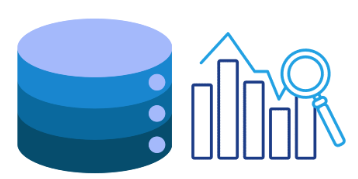What Is Datafication?
Datafication is the process of converting various aspects of life into digital data for analysis and informed decision-making. It is a technological trend that has been gaining momentum in recent years, as the increasing availability of sensors and other devices has made it possible to collect data on a massive scale.

What are the uses of Datafication?
Datafication can be used to track and analyze a wide range of activities, including:
Consumer behavior: Datafication can be used to track what people buy, where they shop, and what they do with their time. This information can be used to improve marketing campaigns and to develop new products and services.
Healthcare: Datafication can be used to track patient health data, such as their medical history, test results, and medication adherence. This information can be used to improve patient care and to identify potential health risks.
Transportation: Datafication can be used to track traffic patterns, vehicle emissions, and public transportation usage. This information can be used to improve transportation planning and to reduce environmental impact.
Environment: Datafication can be used to track air quality, water quality, and land use. This information can be used to protect the environment and to promote sustainable development.
Datafication has the potential to revolutionize the way we live, work, and interact with the world around us. By making it possible to collect and analyze data on a massive scale, datafication can help us to make better decisions, to improve our health, and to protect the environment.
What are the benefits of datafication?
Here are some of the benefits of datafication:
- Improved decision-making: Datafication can help us to make better decisions by providing us with more information. This information can be used to identify trends, to spot problems, and to develop solutions.
- Increased efficiency: Datafication can help us to become more efficient by automating tasks and by identifying areas where we can improve.
- New insights: Datafication can help us to gain new insights into the world around us. This information can be used to develop new products and services, to improve our understanding of the world, and to make the world a better place.
What are the risks of datafication?
There are also some potential risks associated with datafication. For example, datafication could be used to track and monitor people without their consent. It could also be used to create discriminatory algorithms that unfairly target certain groups of people.
Here are some of the risks of datafication:
Privacy concerns: Datafication can raise privacy concerns, as it involves collecting data on people without their consent. This data could be used to track and monitor people, or it could be used to create discriminatory algorithms.
Bias: Datafication could be used to create biased algorithms that unfairly target certain groups of people. This could lead to discrimination in areas such as employment, housing, and healthcare.
Data misuse: Datafication could be used to misuse data, such as by selling it to third parties or by using it for illegal purposes. This could have a negative impact on individuals and on society as a whole.
Overall, datafication is a powerful tool that has the potential to revolutionize the way we live, work, and interact with the world around us. However, it is important to be aware of the potential risks and benefits of datafication before using it. With careful planning and responsible use, datafication can be a powerful tool for positive change.
You can also watch our short video on Datafication on YouTube. Below is the link to the video.
